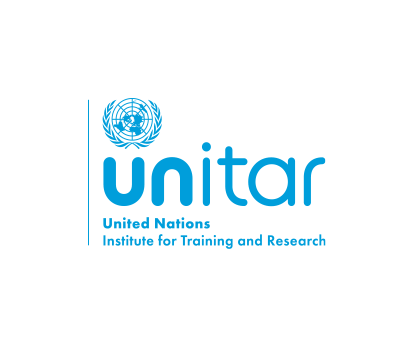
Application of Geospatial Decision Support System for Environmental Conservation (Big Data Analysis and Multi-Criteria Decision Analysis for Desertification Management) in Nigeria
The project “Strengthening Capacities in the Use of Geospatial Information for Improved Resilience in Asia-Pacific and Africa.” (2021-2024) intends to develop sustainable capacities and implement tailored geospatial solutions to improve policy and decision-making processes in Disaster Risk Reduction. With the support of NORAD, UNOSAT partners with the governments to develop innovative capacity development solutions and geospatial services, leveraging technological advances and innovation for improved decision making in Disaster Risk Reduction, Climate Resilience, Environmental Preservation and Food Security in the eight target countries: Bangladesh, Bhutan, Fiji, Lao PDR, Nigeria, Solomon Islands, Uganda, and Vanuatu. The project’s primary focus in Nigeria is the geospatial capacity development for environmental conservation and the nominated focal institution for implementation in Nigeria is the Federal Ministry of Environment.
This training program has been carefully designed to introduce participants to modern remote sensing and provide practical examples of using cutting-edge analytics tools. These tools maximize the utilisation of satellite data for monitoring and managing desertification. By developing these capabilities, Nigeria will be well-prepared to address emerging challenges and promote sustainable development.
At the end of the course, participants should be able to:
- Use big data analytics tools like Google Earth Engine for applications of land monitoring and change detection.
- Carry out desertification monitoring using Google Earth Engine.
- Use a web-based Multi-Criteria Decision Analysis (MCDA) tool for informed decision making.
The course introduces GIS and remote sensing for sustainable development, with a particular focus on desertification monitoring. It begins with introductory modules on Google Earth Engine (GEE), followed by practical applications of GEE for monitoring desertification. The course concludes with an exploration of a web-based Multi-criteria Decision Analysis (MCDA) tool, demonstrating how geospatial analytics can be integrated to support informed decision-making.
This is a full-time, face-to-face course with lectures, lab exercises using satellite imagery and real case scenarios (60% lab exercises, 40% lectures and discussions). This course is divided into 3 modules. The average workload is likely to be around 21 hours. The course is designed in a way to have a balanced approach between theoretical and practical teaching methods consisting of presentations, live demos, videos, interactive sessions, and lab exercises. At the end of the course, UNITAR-UNOSAT will set up a community of practice platform to maximise the learning experience of participants and to provide all required technical assistance to training participants during and after the training.
The course is designed to accommodate participants selected by the Federal Ministry of Environment and participants who successfully completed Earth Observation for Drought Monitoring training offered by UNOSAT. It is recommended that respective departments should select participants who are willing to develop and apply the skills learnt from this capacity building exercise to their daily workflow to enhance project service delivery within the ministries.
Lab exercises will be performed using QGIS, Google Earth Engine, and other online tools and platforms.

